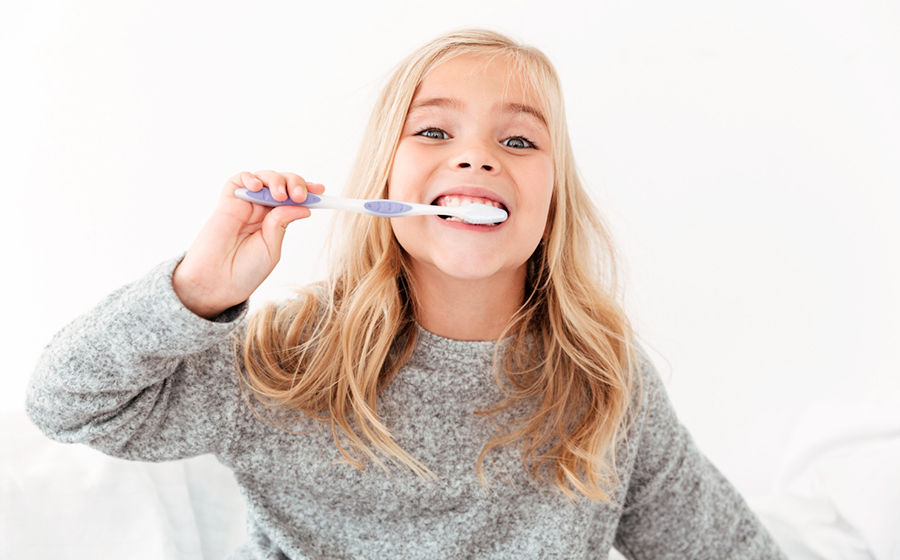
- October 26, 2023
Healthy Teeth Happy Child
As a parent you want what's best for your little ones — and this includes their oral (dental) health! Instilling good oral hygiene habits early in life is one of the most important things any parent can do, resulting in a lifetime of healthy gums and teeth.
Young children often need careful guidance and gentle assistance when learning how to take care of their pearly whites.
Our experienced dentist and gentle and friendly staff are ready to see the kids of all ages. We provide dental care to infants, toddlers, children and teenagers. We make sure that every visit in our clinic is a positive and happy experience for the young ones to develop a long lasting, great relationship with our dentist.
Important Tips for Your Childs Healthy Teeth
Healthy foodDiet is more important to our dental health than you may realize especially for children who have a sweet tooth. Oral bacteria feed on sugars and refined carbohydrates to produce acids that attack the tooth enamel resulting in cavities and infections.
Indulge your child's sweet tooth with healthy snacks or juices that come from the natural fruits. At meal times swap out refined carbs with complex ones and adding milk and yogurt may help in strengthening the bones of growing teeth.
Brushing teeth twice a dayAs soon as you notice the first tooth appear in the mouth you should start brushing their teeth at least twice a day, with a pea sized amount of fluoride free toothpaste and children's tooth brush. The gums also should be gently cleaned with a light hand until the rest of the teeth erupt.
It is best to have a regular brushing routine. This not only helps protect your child's teeth but it will also help them getting into the habit of brushing when they start to handle the task on their own.
Use the right toothpaste and toothbrushBabies and kids are sensitive hence you should make sure you're using the right toothpaste when it comes to start brushing.
Opt for a baby or child specific toothpaste that features fluoride. You should also only use about a pea sized amount of toothpaste for an infant and toddler on the brush while brushing.
Be sure to prevent any swallowing of toothpaste while brushing even if the toothpaste has a swallow safe label. Use an age specific toothbrush and replace it every 3 months or when the bristles get frayed, whichever comes first. Make sure to use a soft brush.
Add flossing to your dental hygiene routineOnce all your child's teeth come in add flossing into their routine. You won't need to do this when your child has a spaced-out teeth. But when those gaps begin to close you need to do flossing once a day. We recommend flossing in the evening when your child's mouth is full of food and junk foods.
Get routine check upsA child should see a dentist by the time they turn 1 year old. They should continue going for routine check ups every 6 months after that. These routine dental visits will teach the child not to be afraid of dentist. This also gives the dentist a chance to monitor the growth of the child's teeth and jaws. This will help catch problems in their early stages.
Monitor for signs of any complicationsDuring brushing take a little time to inspect your child's mouth for any potential concerns. You can looks for dark spots, cracks, holes, or a swelling that could be a sign of potential complication.
You should also see the dentist right away if it seems your child is experiencing any pain. Crying, refusing to eat, and pawing at their face may all be signs that your child is experiencing a toothache.
Make oral hygiene funOnce your child starts brushing on their own, they may still need a helping hand. Monitor their brushing to ensure they are brushing using the proper technique.
To motivate them further brush and floss along with them to turn it into a fun activity for the whole family. Let them choose their own brush and flavor of their toothpaste like strawberry or bubble gum.
If your child is still struggling to stick to their brushing and flossing routine turn it into a game. Use a sticker chart and reward system to keep them motivated to brush. Whoever has the most stickers at the end of the week gets a reward.
By Dr. Tabassum Saqib